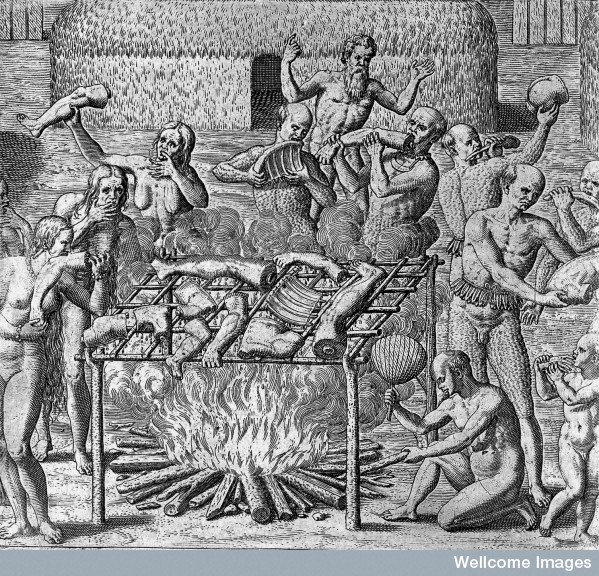Accueil > Actualités ultramarines > Conférence "Cannibalism in the Early Modern Atlantic" (Southampton, 15-16 (...)
Conférence "Cannibalism in the Early Modern Atlantic" (Southampton, 15-16 juin 2015)
Le 11 juin 2015 à 11h17
June 15, 2015 – June 16, 2015
The University of Southampton, Southampton, UK

Pour mémoire, l’appel à communication
On early modern voyages, people ate to survive. They fried, roasted, and stewed turtles ; they netted fish—including sharks ; and they gathered shellfish. During dire moments they sampled penguins and seals. And in even more extreme circumstances, they consumed each other. Last May archaeologists at the Jamestown Rediscovery Project excavation in Virginia unearthed bones that, for the first time, provide physical evidence suggesting that early American colonists ate each other during the Starving Time of 1609-10. Historians have long acknowledged documents detailing the events of that winter, but public interest in the new discovery testifies to the enduring power of cannibalism stories. Such tales, however, tend to deteriorate into debates over whether or not cannibalism occurred, or grisly anecdotes that elide a larger picture of the past. This conference asks participants to think broadly about what occurrences of cannibalism reveal about food history, Atlantic history, and maritime history. Questions that persist include : How did fears about cannibalism shape Europeans’ quest for food ? How did early modern actors reconcile medicinal cannibalism with worries about anthropophagy ? How did cannibalism tales influence exchanges of food between Europeans, Native Americans, and Africans ? How did the daily concerns of maritime travel result in occurrences of famine and man-eating ? And how does cannibalism challenge the Atlantic World paradigm ?
This two-day conference seeks to bridge disciplinary gaps between (but not limited to) anthropology, archaeology, history, and literature. It aims to move beyond debates about whether or not cannibalism occurred, and to ask instead why cannibalism mattered to people at the time. Selected papers will appear as an edited volume under contract with the University of Arkansas Press.


